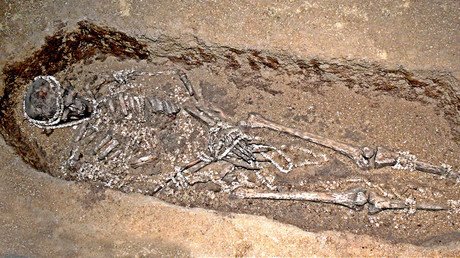Trump – bad! Migrants – good! Venice Biennale is liberal establishment smugness as art
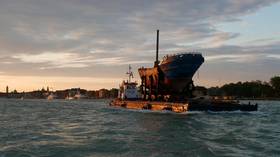
It pretends to shock and challenge, but the talking points of the art at the world’s biggest exhibition come straight from the New York Times op-ed page. And despite the counter-cultural non-conformism – everything is for sale.
Let’s leave for the moment the “is-it-art?” and “my-four-year-old-could-do-it” discussions as they pertain to the 87 pavilions throughout Venice in which countries from Albania to Zimbabwe exhibit the best of contemporary art, alongside the 79 specially-invited individual artists.
Take instead in good faith its guiding principles – that in place of craftsmanship almost all of the art at this exhibition sources its power from the social critique it conveys.
So, what is the message?
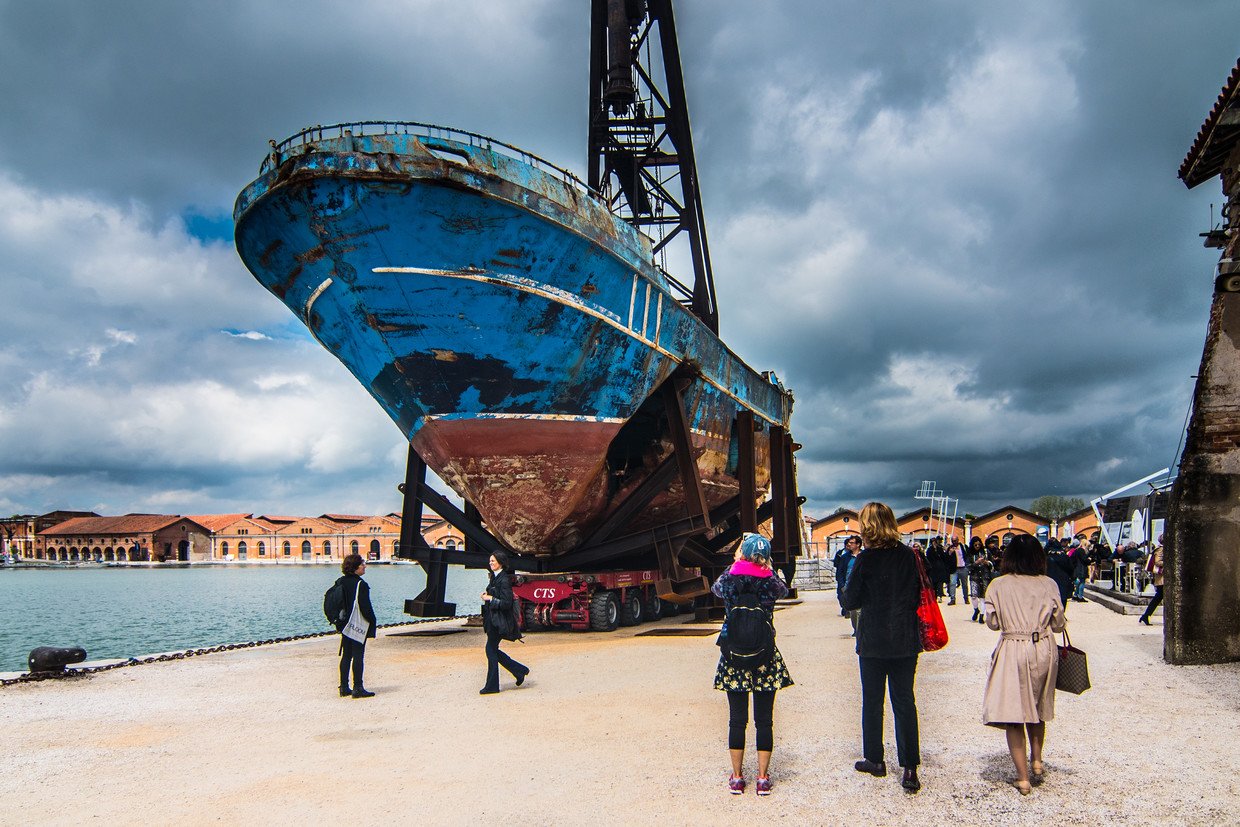
The signature piece of this year’s Biennale is the wreck of a fishing boat, in which 800 migrants died off the coast of Libya in 2015, erected opposite a cafe on the promenade. That’s it, nothing else done to the rusting carcass. As you sip your Aperol Spritz, you are presumably meant to say something “That’s terrible that all these people died” or “Poor African migrants” or “Isn’t that Matteo Salvini a bastard for not letting these people in, I would never vote for him.” So thought-provoking, a real conversation starter. And adds so much to the discussion on migration. Though perhaps not up to par to a 2015 piece by the same artist, Christoph Buechel, which was to turn an old Catholic church into a mosque, which was just so incredibly daring and clever.
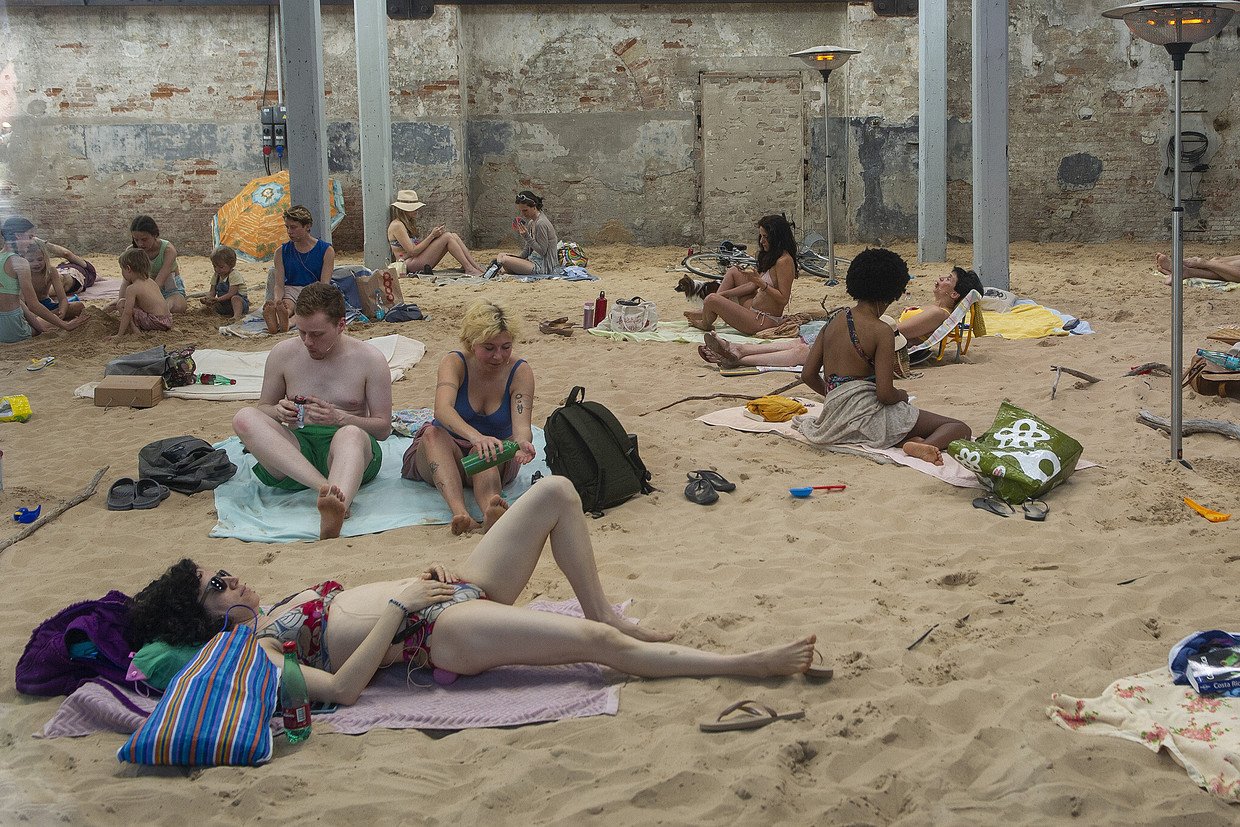
Or visit the Lithuanian pavilion, which won the top national prize. It features tourists on a fake beach singing joyous arias about their clothes, made in Chinese sweatshops, about airplanes, dispatching CO2 into the atmosphere, about how it’s getting hotter all the time. The message: our capitalist, consumerist world is so stupid and complacent – all obliviously singing happy songs as global warming roasts us. Get it?
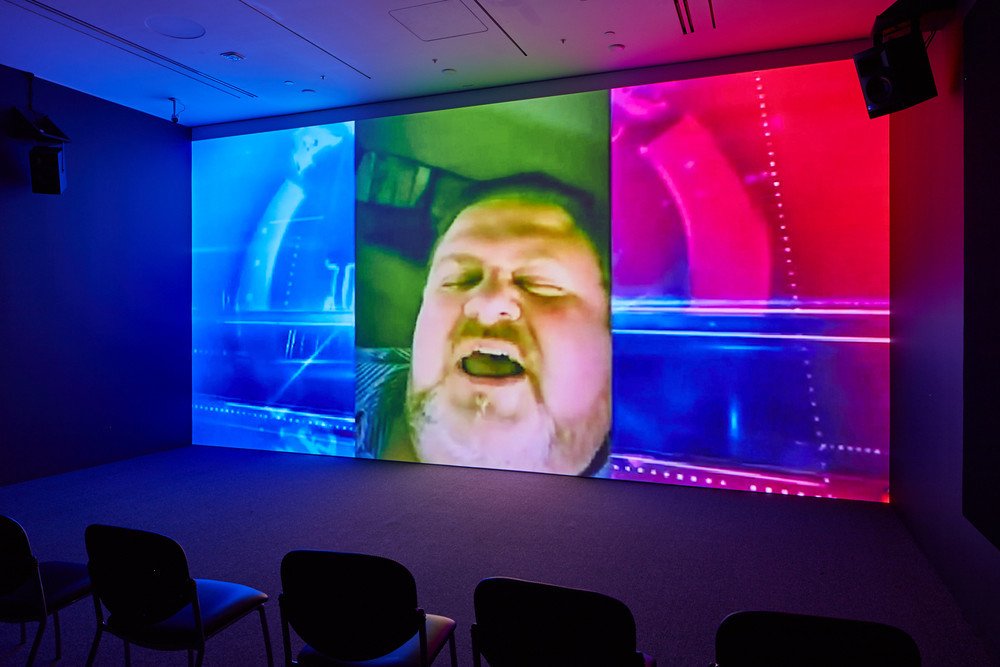
Here is the individual winner – black Los Angeles artist Arthur Jafa’s White Album, which is 40 minutes of mostly close-ups of white people being purposely or accidentally racist about black people, juxtaposed with scenes of racial violence. See: white people are racist, America is racist, you are probably a racist too. The overwhelmingly white audience sits there in penitent self-loathing, though safe in the knowledge that they are not like THOSE OTHER WHITE PEOPLE who’ve probably never even been to a decent art exhibition.
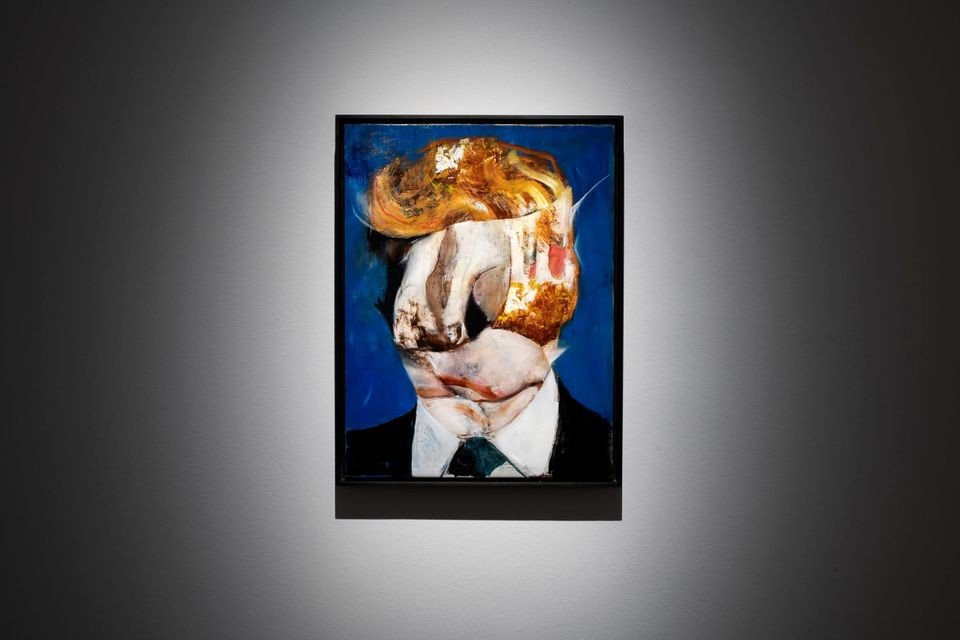
A separate sub-genre is anti-Trump art. There is a portrait of disfigured smears under the recognizable hair (“Trump is ugly chaos”), there is a replica of an empty Lincoln Memorial chair with a whip attached (“America in a nutshell”), and someone actually exhibited printouts of Hillary Clinton’s emails (“He keeps asking for those emails, well here they are!”). The 2019 Biennale is subtitled 'May We Live in Interesting Times', an ironic Chinese curse wishing your enemy to suffer through a dark era. Because, obviously, times were never interesting under Obama.
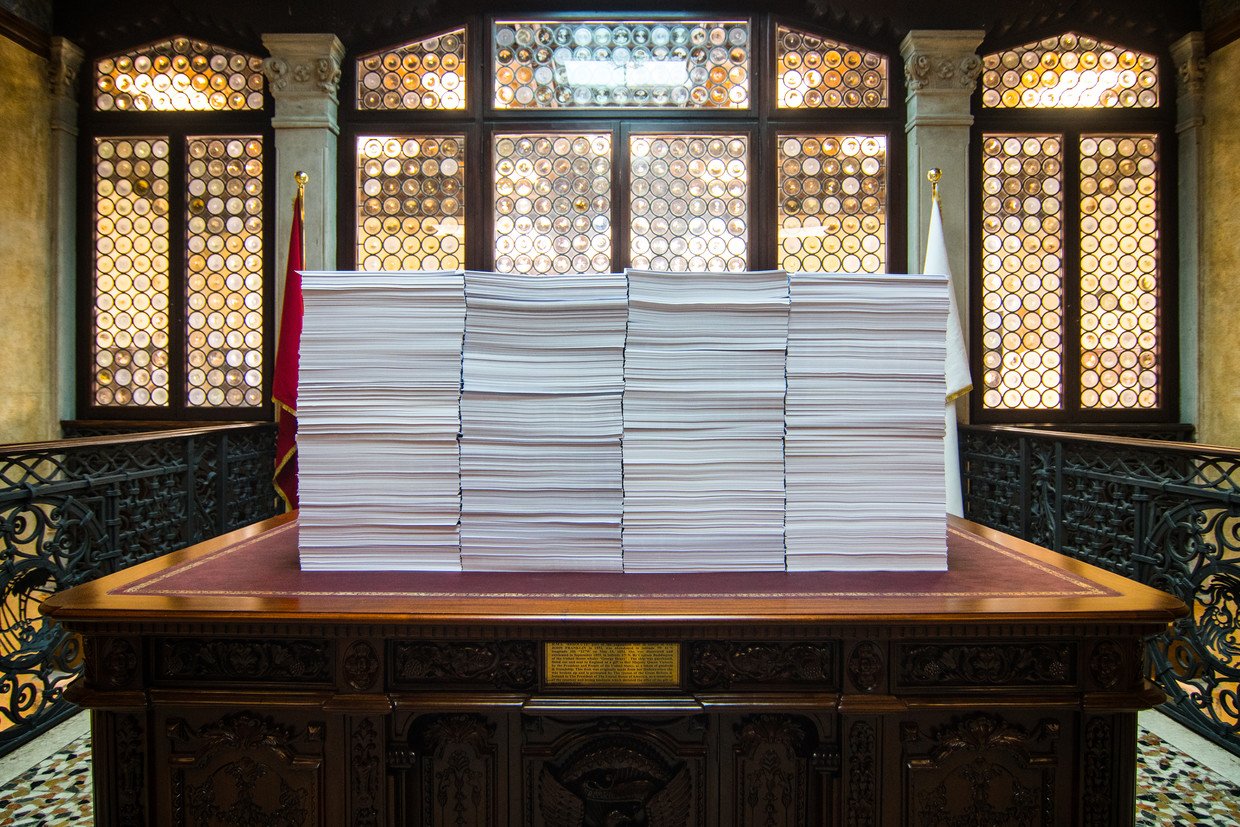
Now, you may agree or disagree with the messages expressed by this art, but it is hard to argue against the fact that we hear these exact same sentiments every day almost to the letter. And not in some upstart radical pamphlets, but in the Washington Post, on CNN, in the Guardian. At Harvard and at Google. From Clinton, Emmanuel Macron, Angela Merkel, and Jean-Claude Juncker.
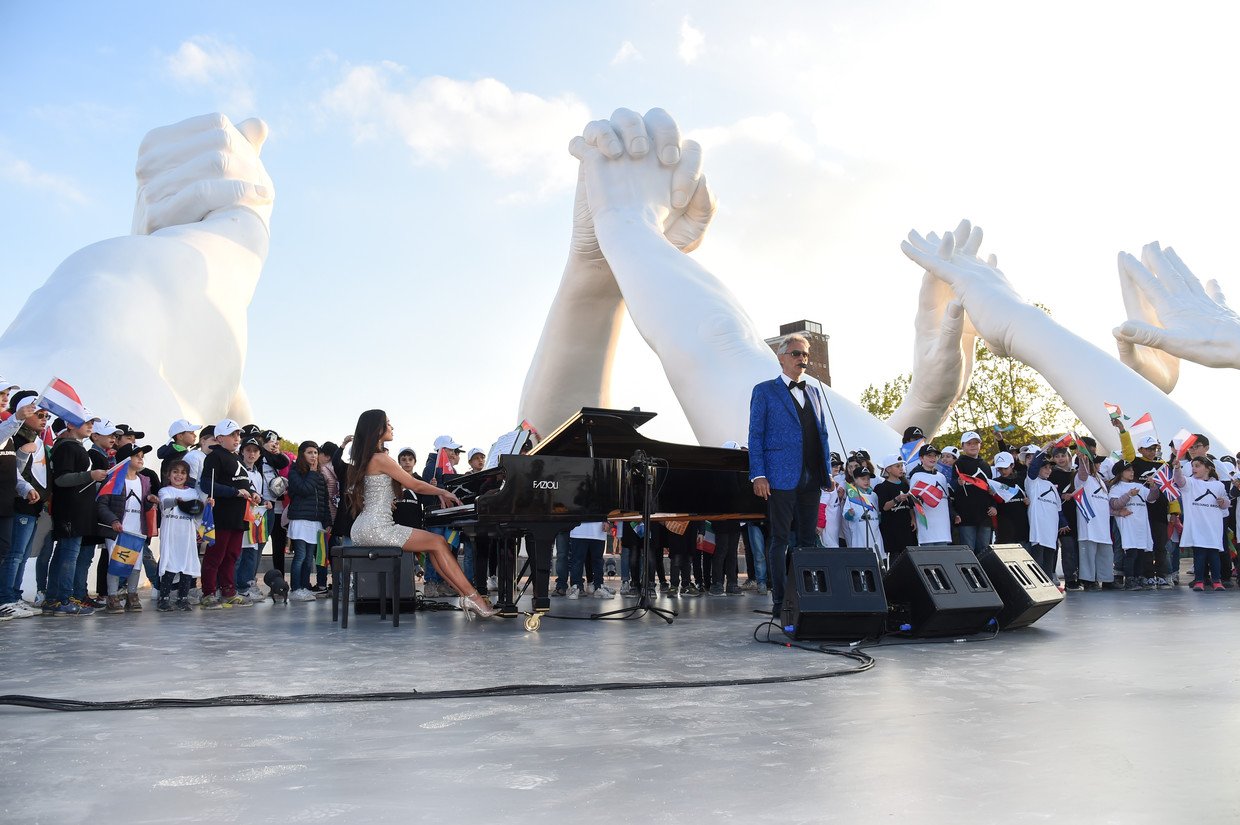
So, the social critique on which these artists stake their creative credentials seems to be – take the most hackneyed and glib message of the well-to-do centrist establishment and to visually amplify it with a thundering heavy-handedness, add a bit of pseudo-shock value and no original thought. Reap the easy applause from those who already agree with you.
And this is where the craftsmanship argument comes back in. The endless Saint Sebastians and Madonnas of the Renaissance, or pastoral Italian landscapes, may not have had something new to say either, but they had inherent artistic value. At best they still connect with the viewer on an emotional level, at worst they are testaments to hard-earned skill or artefacts to the period they were made.
What the value of all this Trump-is-bad art will be, not in 500 years but in 50, is an open question. Anyone up for recreating a topical hangar-sized installation about the Suez Crisis? Though frankly for much of the art, the legacy aspect is a moot question, as it is already worthless in 2019.
Of course, the kicker for the Venice Biennale – and one everyone here must be aware of – is that for all the environmental concerns, both making and transporting these voluminous pieces, as well as attracting millions of visitors in their planes and luxury yachts to the sinking city is likely to have offset any habit-changing impact viewing them had on the audience. And for all the anti-capitalist posturing, this is essentially a commercial showcase, and much of the art is either sold directly (though discreetly, no dealer names on the plaques this year) or can lead to lucrative commissions. Yeah, the polar bears and the migrants died for this. A lot of art is commodification of suffering, but the piousness rankles.
In fact, as you walk through Venice, and turn your gaze from the trendy artists, to the millionaire collectors, to the Instagraming tourists, the Biennale becomes a meta art installation all of its own: one about the self-congratulatory hypocrisy of modern right-thinking capitalism.
By Igor Ogorodnev
Igor Ogorodnev is a Russian-British journalist, who has worked at RT since 2007 as a correspondent, editor and writer.
Think your friends would be interested? Share this story!














